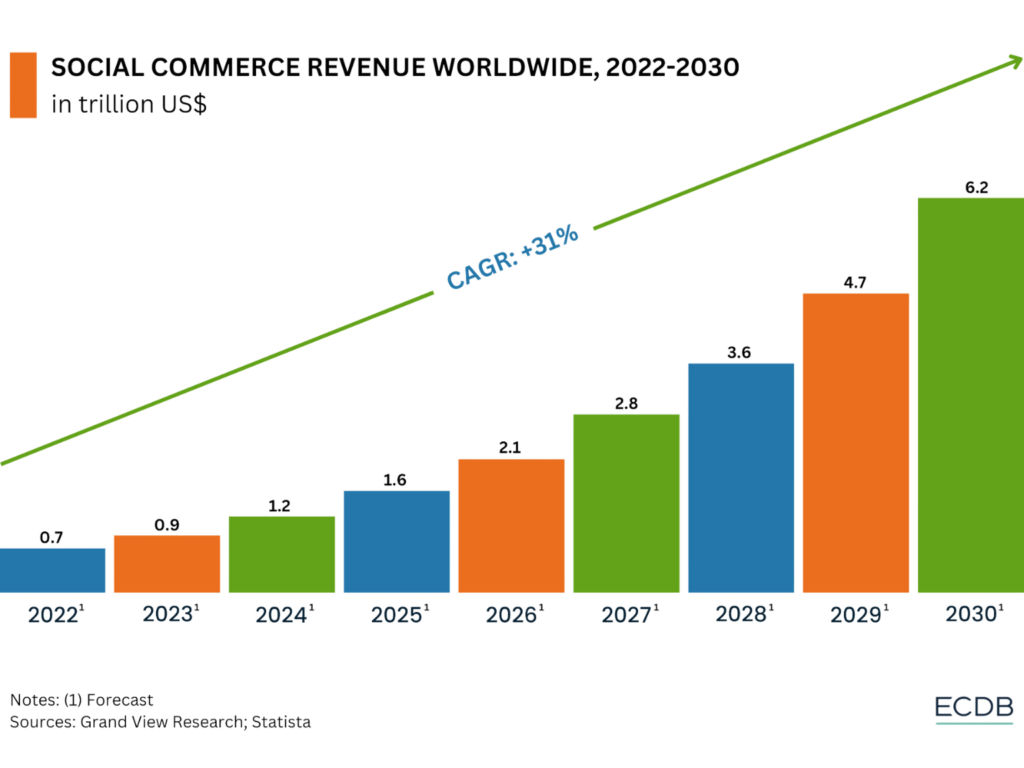SOCIAL COMMERCE
Social commerce represents the cutting-edge evolution of online sales, where the power of social networks meets the efficiency of e-commerce. This innovative approach focuses on harnessing the vast potential of social media platforms—like Facebook Messenger, Instagram Direct, WhatsApp, and more—to directly engage and sell to customers. Unlike traditional e-commerce, which relies on customers visiting websites or apps, social commerce taps into the conversational dynamics of social networks. It enables businesses to interact with leads obtained directly through social network chats, transforming casual conversations into sales opportunities.
This form of commerce capitalizes on the immediacy and personalization of social interactions, allowing sellers to offer recommendations, answer queries, and close deals within the chat environment itself. By integrating sales processes into social media chats, businesses can create a seamless and highly engaging shopping experience for customers, fostering trust and loyalty. Social commerce not only simplifies the buying process for consumers but also provides sellers with a direct line to their audience, opening up a new realm of opportunities for personalized sales and marketing strategies.

Why We Need Social Commerce in Latam and the Caribbean and it’s Key Benefits:
- Addresses Unique Market Needs: Latin America and the Caribbean are known for their diverse and dynamic markets. Social commerce meets the unique demands of these vibrant digital communities by offering tailored shopping experiences.
- Overcomes Logistical Challenges: The regions face significant logistical hurdles, including payment security concerns, limited banking access, and challenging delivery logistics due to varied and difficult terrains. Social commerce simplifies transactions on familiar platforms, making it easier to navigate these issues.
- Enhances Payment Security and Accessibility: By integrating secure transaction processes within social platforms, social commerce alleviates common fears related to payment security and expands access to those with limited banking services.
- Builds Trust and Community: Trust is a critical factor in the success of online transactions, especially in areas skeptical of e-commerce. Social commerce leverages personal connections and community endorsements, fostering trust between buyers and sellers.
- Equalizes Business Opportunities: The economic diversity, featuring both bustling cities and remote areas, creates a unique landscape where social commerce acts as an equalizer. It enables small businesses to compete with larger corporations by providing them with cost-effective, powerful marketing and sales tools without requiring substantial infrastructure.
- Leverages Rapidly Evolving Consumer Behaviors: As consumer behaviors continue to evolve quickly, social commerce offers a flexible and adaptive platform that can keep pace with changing preferences, especially among digitally savvy users.
- Facilitates Easier and More Engaging Shopping Experiences: Social commerce transforms shopping into a more interactive and engaging experience, encouraging higher engagement rates and potentially increasing sales.
- Supports Small and Medium-Sized Enterprises (SMEs): By lowering the barrier to entry for online sales, social commerce provides SMEs with opportunities to reach wider audiences, improve customer engagement, and drive growth.

